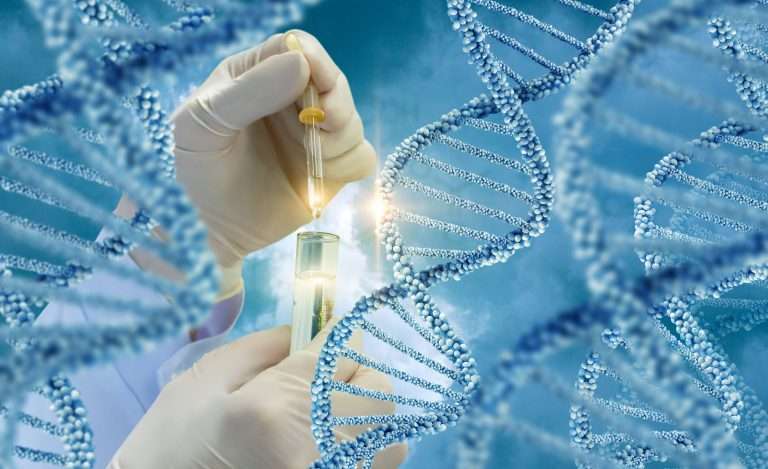We spend $3.3 trillion a year on health care, more than any other nation (absolute and per capita), and yet we still suffer worse life expectancy and health outcomes than other developed countries.
Fifteen percent of Americans still smoke. Seventy percent of Americans are obese or overweight. The majority of Americans engage in risky health behaviors that negatively affect their well-being.
Equality in health, just like equality in genes or intelligence, proved to be another man-made delusion.
My grandparents were not among these. They were in prime health; I can remember hiking in the woods with my Soviet-escapee grandfather and trying to keep up with his pace. I also remember a doctor’s office visit where my grandfather was the one falling behind. Among these memories are the last times I saw my grandparents in a hospital bed before each passed away. Despite the wide disparities, these memories are not spaced years apart—instead, they elapsed over a matter of months. As a child, I often struggled with the question of why my grandparents had to be taken away from me so young. Equality in health, just like equality in genes or intelligence, proved to be another man-made delusion.
Hungry for answers (or, perhaps, not even aware of the right questions), I began volunteering at the cancer research center where my grandparents had received their care. Over my years as a medical student and a life sciences researcher, I have helped to elucidate but a smidgen of the furtive, often sinister, partnership between genes and behavior, one that determines our entire existence. I was inspired to get genetically tested myself, and I learned that I have predispositions towards all sorts of cancers and heart disease—if can you name it, I probably have it. I am a ticking time bomb.
However, I have not succumbed to the fear of mortality; rather, this fear has motivated me to modify my lifestyle and mitigate the risk of my genetic baggage. In times of uncertainty, I remember how my grandparents valiantly persisted in the face of oppression, whether by governments or genes, until the very end. They instilled in me the ultimate libertarian ideal: being the master of one’s own fate. A cheap, free-market-provided saliva test has empowered me to take command of my health far better than any government initiative could.
The Problem
We spend $3.3 trillion a year on health care, more than any other nation (absolute and per capita), and yet we still suffer worse life expectancy and health outcomes than other developed countries. For all the political posturing in the news, the entirety of recently proposed health care reforms essentially amounts to reshuffling the deck chairs on the Titanic. We must fundamentally reconsider the reactive nature of our health care.
Recent research shows that as many as 50 percent of the nearly three million annual deaths in this country are entirely preventable. Heart disease, the number one killer of Americans, is a function of lifestyle in the great majority of cases. Cancers, rather surprisingly, could be prevented in 50 percent of cases.
Just a few decades ago, smoking was the leading preventable cause of death—today it has reached a record low, largely due to effective ad campaigns (paid for by the industry, not government) and cigarette taxes. People do respond to apt incentives and education, and such initiatives can often pay for themselves by virtue of their positive externalities (considering we, the taxpayers, are subsidizing the healthcare of over half the country).
Obesity, which, as the leading cause of death today, unequivocally constitutes the worst public health crisis we have ever faced, is not as simple as taxing a Big Mac—obesity is not merely a function of what you eat, but how much, your exercise levels, and your genes. There is no magic bullet.
Government involvement in all domains of life, from entitlements to agriculture, has exacerbated the obesity crisis.
A good start could be restricting food stamps to nutritious food items. Today, billions of dollars of taxpayer money go towards the consumption of chips and high fructose corn syrup, not merely through the food stamps program, but also through farm subsidies for corn and potatoes. Government involvement in all domains of life, from entitlements to agriculture, has exacerbated the obesity crisis.
Nevertheless, the best way to encourage holistic healthy living, from consumption to exercise to preventative screening, would be to attach a financial impetus to lifestyle modifications. Such a proposal could resemble programs already in practice, such as safe driving rewards from car insurers, in both implementation and enforcement. The idea has already gained traction in other industries, with life insurer John Hancock offering discounts to those who reach certain benchmarks on fitness-tracking devices.
Similar campaigns, however, have hit a snag: critics argue it is discriminatory to reward consumers based on metrics like weight loss because such achievements are partly genetic. Fortunately, the recent revolution in personal genetics has afforded us insights into the human body never before thought possible.
The first sequencing of the human genome, in 2001, took decades in the making and cost billions. Today, personal genetic testing is available from services like 23andme for as low as $50, and the results, albeit limited, are available within 6 weeks.
Using Genetics to Find Solutions
Even our pitiful present-day understanding of human genetics could be employed towards resolving today’s healthcare challenges. Taking genetics into account when incentivizing individuals for lifestyle changes would allow people to be compared not to others, but to their own potential. With genetic information in hand, a person with a predisposition towards obesity would not be penalized for failing to lose as much weight as another, but could still be incentivized based on individual milestones. By discriminating prices based on lifestyle, with genetics in mind, the chooser would finally bear the full burden of his or her own choice.
Genes have proven to be the architect, the domain, and thus the property of the individual.
Human genetics have long struggled to step out of the shadow of racism, Nazism, eugenics, and overall human hubris. The morals qualms that haunt the discipline arise from a legacy of misinterpreting genes to justify the slaughter or oppression of millions. Yet the flawed experiments of the past are no reflection of the field today—current genetics research portends a world free of cancer, heart disease, and other chronic illness. Since the sequencing of the human genome in 2001, we have uncovered that 85% of human genetic diversity is found not between populations, but among them, making us all far more similar than we could have conceived. Thus, genes do not predicate race or ethnicity—these are social, not biological, constructs, created by the collective to infringe upon our rights. Rather, genes have proven to be the architect, the domain, and thus the property of the individual. We have uncovered our own unique instructions, and they are truly ours: ours to read, and manipulate should we choose. Genetic testing does not deprive one of his or her humanity; it liberates it.
Neither would proposals to consider genetic information constitute corporate or government coercion. The consumer is free to choose his or her insurance (or lack thereof, thanks to the repeal of the individual mandate), while the insurer must be free to choose to vary premiums and offer rewards however they see fit. The insurance model fails without the ability to spread risk by varying prices. Unfortunately, with today’s political climate, necessary reforms that would permit the price discrimination and the consideration of genetic information are unlikely to take place anytime soon.
Insurers or employers cannot hold the results of genetic testing against you.
At the very heart of libertarianism lies the concept that one does not need a higher authority to improve his or her life. Genetic testing is a once-in-a-lifetime equalizer, allowing individuals to circumvent the bureaucratic quagmire of healthcare today and take command of their own health. Such tests are no longer cost-prohibitive, and thanks to the Genetic Information Nondiscrimination Act, insurers or employers cannot hold the results against you.
While we are all aware of the benefits of exercise and healthy eating, personal genetics could also offer personalized lifestyle suggestions. For instance, I learned that I have an MTHFR mutation that predisposes me to high homocysteine levels, which, in turn, greatly increases my risk of developing heart disease. However, research shows that I can reduce that risk by eating foods rich in, or taking supplements for, folic acid. This gene, alongside countless others, does not doom me to develop heart disease, but it does indicate an area of greater risk against which I can take concrete actions.
There are unfortunate genetic conditions that are entirely unpreventable, but even in these cases, genetic testing can inform individuals of their carrier status, an important consideration before having children. Widespread genetic testing (by individual choice, of course), partnered with selective fertilization, would allow all parents to safely have children while minimizing the risk of costly and debilitating life-long illness.
Despite the seemingly ubiquitous stories of such fatal genes, research shows that the greatest determinant of our health is not our genetics but our behavior. Our genes do not have to define our fate—rather they can offer us clues as to how we can, most efficiently, be the masters of our own health.
Human ingenuity and curiosity, like a tree breaking through a crack in the concrete, always find a way.
The government (submitting to the will of the healthcare lobby) is not in favor of consumers receiving easy access to their genome. The advent of direct-to-consumer genetic testing has proven itself far cheaper than professional diagnostic companies because it side-steps government-created regulatory monopolies (a phenomenon seemingly plaguing all sectors of healthcare). In response, the FDA has banned companies such as 23andme from providing full analysis of one’s health risks (in April 2018, they finally granted approval to report a major gene in breast cancer onset—one of countless possible risk factors these services are capable of reporting). Fortunately, human ingenuity and curiosity, like a tree breaking through a crack in the concrete, always find a way. Promethease, a non-profit online program, allows users to import their raw data from services like 23andme and receive a most up-to-date analysis free of charge. The FDA dike, holding back a river of genetic information, cannot hold much longer. Genetic testing is the future, and no government initiative can stymie the march of progress.
That said, the genetic testing itself is the easy part—making the lifestyle modifications necessary afterward requires resolve and sacrifice. We live in a world ripe with temptation, with fast food and sedentary entertainment at our fingertips. The hope is that by providing individuals with personalized risks and specific changes, genetic testing can be the first step in encouraging overall healthy living. Such change is gradual and cumulative—one does not have to become a marathon runner to live longer. Research shows that vigorous exercise is not required to reap the benefits, rather, any amount at all will do. Small changes, especially if started early, can go a long way.
There is no excuse for those who fail to safeguard their bodies, but afterward, expect everyone else to pay for their mistakes.
We are fortunate to live in an era where information is accessible in an instant—there is no excuse for those who fail to safeguard their bodies, but afterward, expect everyone else to pay for their mistakes. I have put my money where my mouth is—after learning about my risks, I have made proactive changes to my lifestyle. Remembering my grandparents carry on with their lives, embracing rather than cursing their circumstances, has served as an example for me in everything I do.
Today, people are winning the battle against illness, like the cancer that killed my grandparents, thanks to advances in genetic testing and preventative medicine. Such innovations allow us to peer into a better future that is ours for the taking, one where people live healthier and countless families like mine stay together longer. It is a future in which we are empowered by information and free market innovation to surpass the limitations of our own makeup—a future in which we are more than our genes.





